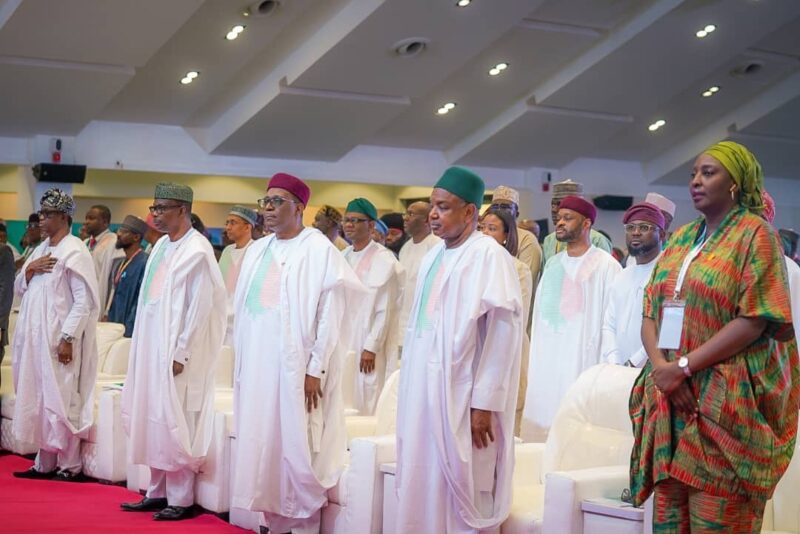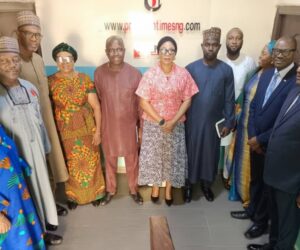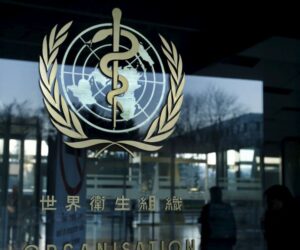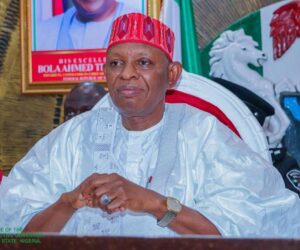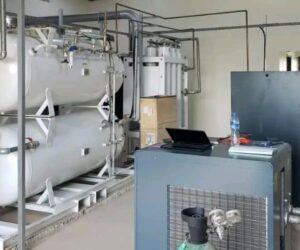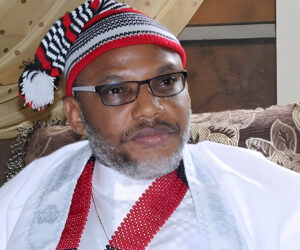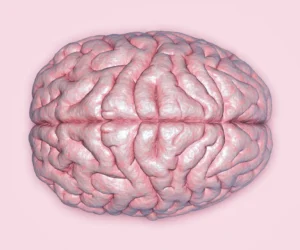President Bola Tinubu’s Renewed Hope Health Agenda could save Nigeria up to N4.8 trillion annually in economic losses linked to preventable diseases, an official has said.
The Minister of State for Health and Social Welfare, Iziaq Salako, while speaking at the 2025 Joint Annual Review (JAR) of the health sector in Abuja on Wednesday, explained that the Nigeria Health Sector Renewal Investment Initiative (NHSRII) is designed to rebuild public confidence, modernise infrastructure, and deliver measurable outcomes across all levels of the health system.
Mr Salako added that the nine health priorities of the Renewed Hope Agenda and the four pillars of the NHSRII are all aimed at achieving a healthy and prosperous Nigeria.
“The operationalisation of the NHSRII is not just an opportunity for expense, it is an investment with clear returns. We estimate an economic return worth N4.8 trillion annually saved from losses to preventable disease recoverable through the blueprint,” he said.
This year’s review, themed “All Hands, One Mission: Bringing the Nigerian Health Sector to Light,” brought together government officials, development partners, and officials to assess progress under the Renewed Hope Agenda and chart the next steps for the country’s health sector.
500 new health projects, 13 tertiary institutions
Highlighting progress under the initiative, Mr Salako said the federal government has initiated more than 500 high-impact health projects across the country, alongside the establishment of 13 new federal tertiary health institutions and six cancer centres of excellence.
He explained that these projects form part of the government’s broader plan to revitalise the primary healthcare system, expand health insurance coverage, and modernise service delivery through digital integration.
According to him, efforts are also underway to strengthen the health workforce through an expansion strategy that focuses on producing and retaining more health professionals while leveraging Nigeria’s diaspora expertise.
Mr Salako said the government’s Power for Health Initiative will help reduce the energy costs of operating health facilities, while the Nigeria Digital Health Initiative is already connecting thousands of facilities nationwide, with millions of patient encounters being recorded electronically.
He added that the cumulative effect of these reforms is expected to reverse the direction of medical tourism, which costs Nigeria about N850 billion annually, and to close the 19-year life expectancy gap between states.
Health financing and accountability reforms
Mr Salako acknowledged that while government spending on health remains below the 15 per cent Abuja Declaration target, progress has been made in strengthening financial accountability and improving access to essential services.
He expressed support for ongoing efforts by the National Assembly’s health committees to raise the Basic Health Care Provision Fund (BHCPF) from one to two per cent of the Consolidated Revenue Fund, noting that the move would expand coverage for millions of Nigerians.
According to him, the ministry has also adopted a results-based disbursement model, where funds are released based on measurable outcomes rather than administrative processes.
Mr Salako explained that the federal government is also developing innovative mechanisms to mobilise additional domestic and external resources for health, including strategic partnerships and private sector financing models.
Call for state, private sector collaboration
Mr Salako urged state governments to strengthen their political commitment to the health sector by providing counterpart funding for the BHCPF and prioritising the implementation of health insurance programmes at subnational levels.
He also called for improved alignment among development partners, urging them to channel their support through the national framework rather than setting up parallel structures.
“We need more political capital at the state level with relevant policy implementation and resource allocation,” he said.
“I also urge our development partners to step up catalytic support that helps us leverage, not substitute, domestic resources.”
Mr Salako commended traditional and religious leaders for their continued role in promoting health awareness, discouraging harmful traditional practices, and supporting government campaigns for improved maternal and child health.
He also called for private sector investment in the production of life-saving drugs, vaccines, medical equipment, and digital technologies that can improve service delivery and strengthen the health supply chain.
READ ALSO: Tinubu sends delegation to UK, seeks Ekweremadu’s transfer to Nigeria
According to the him, such investments would not only reduce import dependency but also enhance Nigeria’s capacity to respond to public health emergencies and boost economic growth within the healthcare value chain.
Mr Salako emphasised that the Renewed Hope Health Agenda is an ambitious but achievable plan built on the determination to ensure equitable healthcare for every Nigerian by 2030.
He urged participants at the Joint Annual Review to assess the nation’s progress with honesty, celebrate achievements, acknowledge shortfalls, and strengthen collaboration toward achieving universal health coverage.
Speaking at the event, the Coordinating Minister of Health and Social Welfare, Muhammad Pate, said the government is deepening reforms to reduce reliance on foreign aid and promote local solutions and production capacity for medicines, vaccines, and health technologies.
Mr Pate added that the government aims to ensure state and local governments increase investments in health, education, water, sanitation, and nutrition.
“This is consistent with the President’s ward-based development approach, which is perhaps the most practical strategy for lifting communities across Nigeria,” he said.

